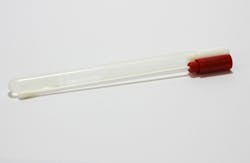The United States will ramp us testing for SARS-CoV-2, the virus that causes COVID-19, by phasing in a new testing process, Vice President Mike Pence announced at a news briefing.
The Food and Drug Administration (FDA) approved high-throughput tests from Roche and Thermo Fisher, and 2,000 labs across the country, including many hospital-based labs, will be able to run these tests.
This will add to the testing capacity of LabCorp and Quest Diagnostics, which recently began testing for coronavirus using their own lab-developed tests (LDTs).
The federal government plans to start implementing the new testing process beginning with states that have been the hardest hit with COVID-19 cases. Tests will be prioritized first to healthcare workers and first responders, and secondly, to patients 65 or older with respiratory symptoms and a fever of 99.6 or higher, according to ADM Brett P. Giroir, MD, assistant secretary for Health in the Department of Health and Human Services (HHS).
In an effort not to overwhelm healthcare providers, specimens for the tests will be collected at special drive-up or walk-up sites set up for that purpose. More than 10 states—including New York, Colorado, Delaware, Washington and Texas—have already developed drive-through specimen collection.
The goal is for the high-throughput testing to replace the manual testing process currently in use at the Centers for Disease Control and Prevention (CDC) and state and local public labs, Giroir said.
During a press briefing, Anthony Fauci, MD, director of the National Institute of Allergy and Infectious Diseases said HHS plans to release more “precise” guidelines for containment and mitigation of the disease in local communities.
“Because as I’ve said many times, and I’ll repeat it: The worst is, yes, ahead for us. It is how we respond to that challenge that’s going to determine what the ultimate endpoint is going to be,” Fauci said.
HHS Secretary Alex Azar said the department has been working to increase the supplies of personal protective equipment, ventilators and field medical units. “We don’t disclose concrete numbers on particular items for national security purposes, but we have many ventilators — thousands and thousands of ventilators in our system,” he said.

